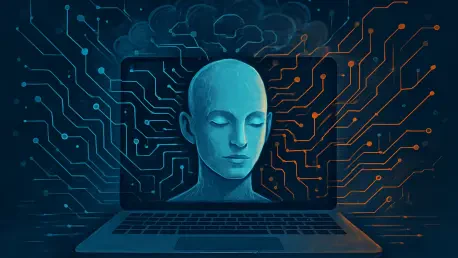I’m thrilled to sit down with Chloe Maraina, a visionary in the realm of Business Intelligence with a deep passion for unraveling complex stories through big data. With her expertise in data science and a forward-thinking perspective on technology’s role in shaping our cognitive landscape, Chloe is the perfect person to guide us through the nuanced impacts of generative AI tools on our thinking skills. Today, we’ll explore how these tools influence our memory and reasoning, the evidence behind their effects on critical thinking, and ways we can harness AI to enhance rather than hinder our mental capabilities.
How do you see generative AI tools impacting our ability to think critically and remember information?
Generative AI tools, like chatbots and content generators, are incredibly powerful, but they come with a double-edged sword. On one hand, they offer instant access to vast amounts of information, which can be a huge asset. On the other, there’s growing evidence that over-reliance on these tools can dull our critical thinking and memory. When we lean on AI to provide answers or generate ideas, we often bypass the mental effort required to process and retain information ourselves. It’s like using a GPS constantly—you might get to your destination, but you’re less likely to remember the route.
What does the research say about how these tools might be changing the way our brains function during learning?
Studies are starting to show that heavy use of AI tools during learning can impact brain connectivity. When we outsource tasks like problem-solving or summarizing to AI, the neural pathways that would typically strengthen through active engagement don’t get the same workout. This can make information feel less sticky—less memorable—because we’re not encoding it through personal effort. It’s a bit like skimming a book versus taking notes; the latter forces deeper processing, which aids retention.
Can you walk us through some of the evidence linking AI use to a decline in critical thinking skills?
There’s compelling data emerging from psychology and neuroscience fields. Some studies have observed that even trained professionals, who you’d expect to maintain sharp analytical skills, tend to disengage their critical faculties when using generative AI. They might accept AI-generated outputs without questioning assumptions or verifying accuracy. This suggests a kind of cognitive offloading, where we trust the tool more than our own judgment, which can erode our ability to think independently over time.
Looking back at history, how do Socrates’ concerns about writing relate to today’s worries about AI’s effect on cognition?
Socrates was skeptical of writing because he believed it would weaken memory and diminish deep thinking—people would rely on external records instead of internalizing knowledge. There’s a striking parallel with today’s concerns about AI. Just as he feared writing would turn minds passive, many worry that AI tools could make us intellectually lazy by doing the heavy lifting for us. While writing ultimately proved to be a boon for memory formation, the jury’s still out on whether AI will have a net positive or negative effect.
Is there a way we can use generative AI to actually enhance our cognitive abilities rather than diminish them?
Absolutely, it’s all about how we interact with these tools. The idea isn’t to banish AI but to use it as a partner, not a crutch. For instance, instead of asking AI to write an entire report, we can use it to brainstorm initial ideas or provide raw data, then apply our own analysis and creativity. The key is to engage actively with the output—question it, refine it, and integrate it with our own thinking. This approach can augment our intelligence rather than replace it.
What are some common pitfalls in how people use AI that might be harming their thinking skills?
One major pitfall is passive consumption. Many people treat AI outputs as final answers rather than starting points, which stifles critical evaluation. Another issue is using AI for tasks we’re perfectly capable of doing ourselves, like basic reasoning or writing simple texts. This over-dependence can atrophy those skills over time. It’s like using a calculator for basic math—you might save a few seconds, but you lose the mental sharpness that comes from practice.
How can we strike a balance between leveraging AI’s benefits and maintaining our own cognitive strengths?
Balance comes from intentional use. Set boundaries on when and how you use AI—reserve it for complex data analysis or ideation, but tackle foundational thinking tasks manually. Also, make a habit of reflecting on AI-generated content. Ask yourself: Does this make sense? What’s missing? By staying engaged, you ensure that AI is a tool for enhancement, not a substitute for your own brainpower. It’s about keeping the driver’s seat while letting AI navigate alongside you.
What’s your forecast for the future of AI’s role in shaping human cognition?
I think we’re at a crossroads. If we continue to use AI mindlessly, we risk a real decline in certain cognitive skills, particularly in critical thinking and memory retention. But if we approach it with strategy—using it to handle rote tasks while focusing human effort on creativity and analysis—I believe AI can elevate our intellectual capacity to new heights. The future depends on education and awareness, teaching people to wield this technology as a powerful ally rather than a dependency.









